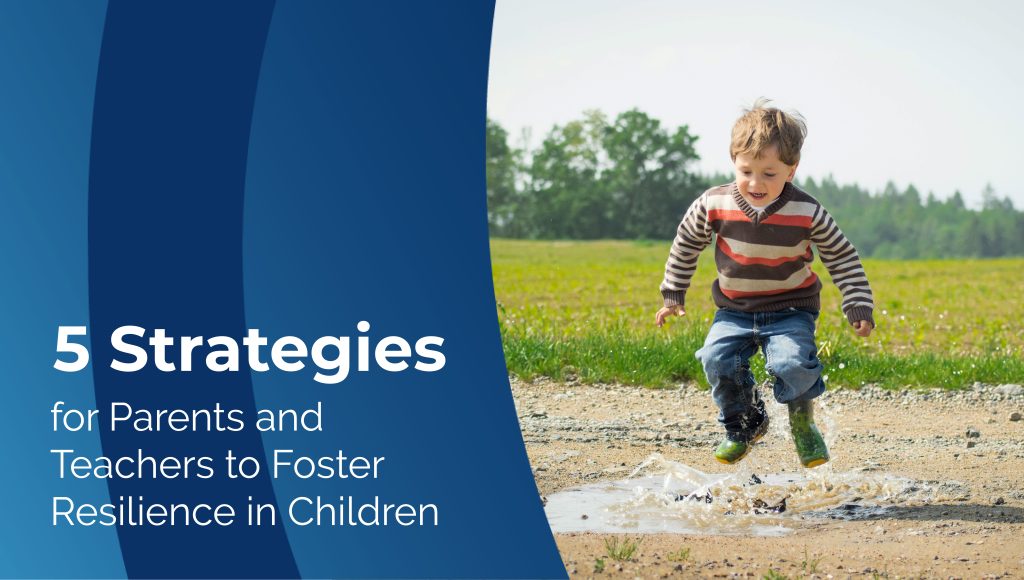How Emotional Resilience Can Influence Learning and Lifelong Education

The Significance of Building Emotional Resilience
In today’s fast-paced world, emotional resilience plays a crucial role in shaping our ability to learn and adapt. It transcends the notion of merely bouncing back from adversity; emotional resilience is foundational for ongoing education and personal development. This vital quality empowers individuals to handle stress effectively, navigate obstacles with confidence, and embrace change as an opportunity rather than a threat.
To truly grasp the importance of emotional resilience, one can examine several key factors that illustrate its impact on learning and development:
- Enhanced Problem-Solving Skills: Resilient learners possess a unique capacity to approach challenges creatively. For instance, a student facing difficulties in mathematics might explore alternative methods of understanding algebra instead of succumbing to frustration. This creative problem-solving ability not only aids in academic success but also cultivates a mindset that views challenges as chances for growth.
- Improved Stress Management: Individuals with strong emotional resilience are more adept at maintaining focus and calm, especially during stressful situations. A prime example is a university student preparing for crucial exams amidst personal or financial hardships. Rather than succumbing to anxiety, a resilient individual can implement effective study techniques or seek support, ensuring they perform at their best.
- Strong Social Connections: Resilience fosters supportive relationships, driving collaborative learning. In Nigeria, community plays a pivotal role in education. For example, students are often encouraged to form study groups, creating an environment where they can share knowledge and support one another in overcoming academic hurdles. This interconnectedness nurtures a culture of learning and adaptability.
In Nigeria, where educational systems frequently contend with challenges such as limited resources, infrastructural deficiencies, and socio-economic pressures, the ability to adapt emotionally becomes increasingly vital. For many students, the dream of pursuing higher education can feel daunting; however, developing emotional resilience can help them maintain motivation and a commitment to continuous learning. This resilience can also enhance educators’ abilities to inspire and guide students effectively amidst the backdrop of societal challenges.
As we explore this topic further, we will uncover how emotional resilience not only aids personal growth but also cultivates a culture of continuous education. Consider how resilience influences our learning journey and what broader societal implications arise from fostering this essential quality. The cultivation of emotional resilience can empower individuals to not only overcome their personal adversities but also contribute positively to their communities, potentially transforming the educational landscape of Nigeria in the process.
SEE ALSO: Click here to read another article

The Interplay of Emotional Resilience and Academic Achievement
Understanding the intricate relationship between emotional resilience and academic achievement is essential for fostering a robust educational environment. When students possess high levels of emotional resilience, they demonstrate a remarkable ability to adapt to unforeseen challenges that can otherwise hinder their learning journey. This adaptability is particularly crucial in regions like Nigeria, where students often face adversity due to economic limitations, cultural pressures, and infrastructural deficits.
One of the most significant ways emotional resilience influences learning is through its impact on academic perseverance. Resilient students exhibit a tenacity that enables them to push through difficulties and remain committed to their educational goals. For example, a student confronted with the challenge of balancing educational demands with family responsibilities is more likely to seek innovative solutions—such as adjusting their schedule or utilizing online resources—when equipped with emotional resilience. This characteristic helps students see setbacks not as dead ends, but as detours leading to more profound personal growth.
Resilience in the Face of Adversity
Furthermore, resilient learners possess a strong sense of self-efficacy, the belief in their ability to achieve desired outcomes. This confidence is pivotal for overcoming the hindrances encountered during the learning process. For instance, a child in a rural Nigerian community may struggle with inadequate educational resources. A resilient mindset encourages the child to seek extra support, whether through local tutoring programs, peer collaborations, or online platforms that provide educational materials. Here, the emotional resilience not only drives the individual towards self-improvement but also enhances the learning ecosystem within their community.
- Emotional Awareness: Resilient individuals tend to cultivate emotional awareness, recognizing their feelings and understanding how to regulate them. This self-awareness allows learners to approach academic challenges with a clear mindset.
- Growth Mindset: Resilient learners often embrace a growth mindset, viewing intelligence and skills as qualities that can be developed over time. This perspective fosters motivation, leading to ongoing lifelong learning.
- Goal Orientation: By maintaining a focus on both short-term and long-term goals, resilient students are motivated to innovate in their learning strategies. Setting measurable, achievable goals helps them visualize the journey ahead and stay committed to their education.
Furthermore, emotional resilience is particularly crucial in the context of lifelong education. In a rapidly changing world, individuals must continually adapt, learn new skills, and re-evaluate their career pathways. Emotional resilience empowers adults—whether they are returning to school after a prolonged absence or seeking professional development opportunities—to face the uncertainties of life with confidence. By fostering a culture that values emotional resilience, communities in Nigeria can pave the way for continuous personal and professional growth.
In conclusion, the cultivation of emotional resilience goes far beyond personal development. It holds the potential to revolutionize education by creating environments where learners can thrive, regardless of their circumstances. As we delve deeper into the multifaceted influences of emotional resilience on learning, it becomes clear that this quality is indispensable in shaping not only individual futures but also the educational landscape of society at large.
Emotional resilience plays a pivotal role in shaping how individuals engage with learning opportunities throughout their lives. It equips learners with the ability to bounce back from setbacks, thereby fostering an environment where continuous personal development thrives. By managing emotional responses, individuals can navigate challenges within educational settings more effectively, creating a pathway toward lifelong learning.One significant aspect to consider is the relationship between emotional resilience and motivation. Motivated learners are more likely to engage deeply with educational content, seek out new experiences, and persist in the face of difficulties. Moreover, emotional resilience nurtures a positive attitude toward failure. Instead of viewing mistakes as detrimental, resilient individuals perceive them as essential stepping stones toward achieving mastery and self-improvement.Research indicates that emotional resilience can also enhance social connections, which are vital for collaborative learning. Resilient individuals tend to have better communication skills and exhibit empathy, making them more effective collaborators. This quality is particularly important in team-based learning environments, where understanding and supporting peers can lead to richer educational experiences.Additionally, emotional resilience contributes to effective coping strategies, allowing individuals to manage stress and anxiety related to academic pressures. Techniques such as mindfulness, cognitive restructuring, and emotional regulation not only aid in learning but also empower individuals to pursue lifelong education with confidence.The introduction of resilience training programs within educational institutions has shown promising results. These programs not only enhance students’ emotional intelligence but also promote a culture of resilience that encourages ongoing growth. By prioritizing emotional resilience in learning contexts, we can cultivate an educational landscape that fosters curiosity, adaptability, and a lifelong commitment to learning.To expand upon this influential topic, consider exploring how specific resilience-building activities and curricula can be integrated into various educational frameworks, paving the way for innovative teaching and learning methodologies that underscore the importance of emotional well-being in academic success. Resilience is not merely a trait; it is a foundational component that can transform educational experiences and empower individuals on their journey of lifelong learning.
YOU MAY ALSO LIKE: Read read another article
The Benefits of Emotional Resilience on Learning Strategies
Incorporating emotional resilience into the learning process can lead to enhanced learning strategies that significantly influence educational outcomes. As students navigate their academic paths, qualities inherent in emotionally resilient individuals often translate into more effective study habits, collaboration, and critical thinking skills. With a grasp on their emotions, students can adopt tailored learning techniques that cater to their unique needs. For instance, adolescents in Nigeria grappling with societal expectations and pressures may find solace in project-based learning, a strategy that nurtures creativity while allowing them to express themselves and collaborate with peers.
Resourcefulness in Problem-Solving
One of the hallmarks of emotional resilience is the ability to exhibit resourcefulness during problem-solving. Resilient learners typically approach challenges with a mindset that encourages exploration and innovation. A prime example can be found in the Nigerian educational landscape, where limited access to technology may hinder students from fully participating in a digital learning environment. Emotionally resilient students are more likely to seek alternative methods, such as sharing resources with classmates, organizing study groups, or leveraging community support, to overcome obstacles. In this context, emotional resilience enables these students to transform barriers into opportunities for collaboration and communal learning.
- Adaptive Learning Styles: Emotionally resilient students demonstrate adaptability when faced with different learning styles, enabling them to engage with varied educational materials. This flexibility can facilitate deeper understanding and retention, ultimately leading to better academic performance.
- Effective Communication: The emotional awareness that accompanies resilience enhances students’ ability to communicate effectively. This skill is particularly vital when discussing academic difficulties with teachers, peers, or guardians, fostering a supportive network that can lead to academic success.
- Improved Coping Mechanisms: Students with strong emotional resilience are better equipped to handle academic pressures. They embrace healthy coping mechanisms, such as mindfulness practices, which can promote focus and clarity in their studies.
The impact of emotional resilience is not confined solely to academic environments; it resonates within lifelong education paradigms as well. As adults embark on the journey of continuous learning, emotional resilience manifests in their readiness to embrace change and uncertainties inherent in career shifts or professional development courses. For instance, a mid-career professional in Nigeria may feel overwhelmed when shifting from a traditional role to a modern tech-driven position. Resilient individuals, however, can view such transitions as a chance to acquire new skills and expand their professional repertoire.
Building a Lifelong Learning Culture
Moreover, fostering emotional resilience in educational settings contributes significantly to establishing a culture of lifelong learning. In Nigeria, communities that prioritize emotional resilience can cultivate environments where individuals of all ages feel empowered to pursue education outside conventional frameworks. Schools, universities, and community training centers can actively promote emotional intelligence through workshops or programs, encouraging students and adults alike to recognize and build upon their emotional strengths.
These initiatives can not only enhance academic success but also prepare individuals for job market challenges, enhance personal development, and ultimately harden the fabric of community growth. Consequently, investing in emotional resilience training can serve as a catalyst for not just individual enhancement but also societal progress, aligning with the nation’s ambition to develop a more educated and resilient populace.
CHECK OUT: Click here to explore more
Conclusion: The Transformative Power of Emotional Resilience in Education
As we have explored, emotional resilience crucially shapes the educational landscape, impacting both learning strategies and lifelong education. The ability to navigate challenges, adapt to varying learning styles, and engage in meaningful collaboration enhances not only academic success but also personal growth. In the context of Nigeria, where societal pressures and resource limitations can often stymie progress, fostering emotional resilience offers a beacon of hope. It empowers students to transform obstacles into stepping stones, allowing them to thrive amidst adversity.
Moreover, the implications of emotional resilience transcend the classroom. As adults transition through various stages of their careers, those equipped with this vital skill can approach new challenges—such as adapting to technological advancements or shifting professional roles—with confidence and creativity. This propensity for embracing change cultivates a culture of lifelong learning, essential for both individual and societal advancement. Communities that prioritize emotional intelligence and resilience create an environment where continuous education is not just encouraged but celebrated.
Investing in emotional resilience training—whether through workshops, mentorship programs, or community initiatives—will equip learners of all ages to enhance their emotional well-being and academic performance. Such investments yield a richer educational experience, yielding not just competent professionals but also robust individuals who contribute meaningfully to society. Ultimately, nurturing emotional resilience is not just beneficial for the individual but serves as a cornerstone for developing a more educated, adaptable, and resilient populace in Nigeria and beyond.


